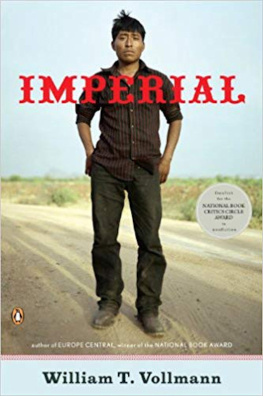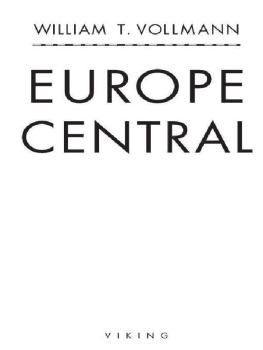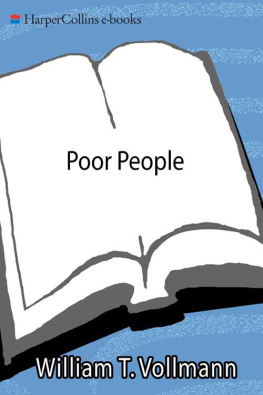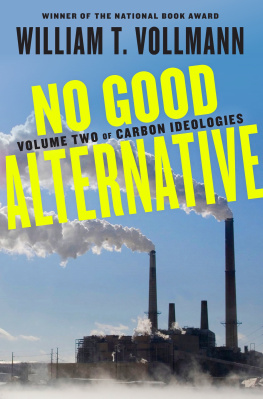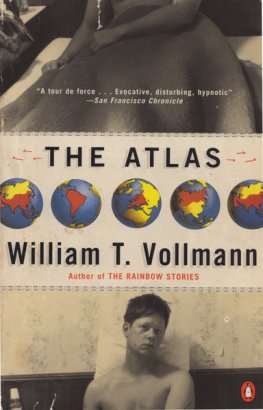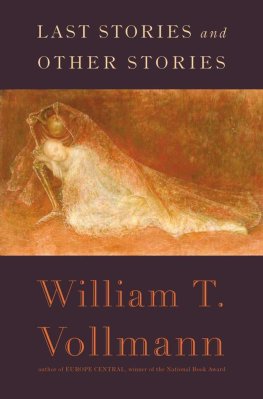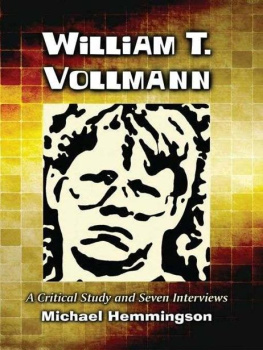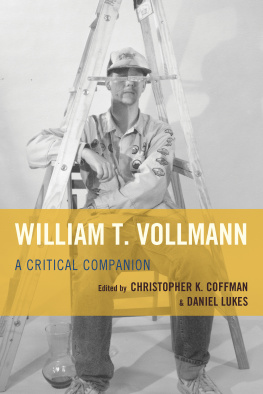Table of Contents
ALSO BY WILLIAM T. VOLLMANN
You Bright and Risen Angels (1987)
The Rainbow Stories (1989)
The Ice-Shirt (1990)
Whores for Gloria (1991)
Thirteen Stories and Thirteen Epitaphs (1991)
An Afghanistan Picture Show (1992)
Fathers and Crows (1992)
Butterfly Stories (1993)
The Rifles (1994)
The Atlas (1996)
The Royal Family (2000)
Argall (2001)
Rising Up and Rising Down:
Some Thoughts on Violence, Freedom, and Urgent Means (2003)
Europe Central (2005)
Uncentering the Earth:
Copernicus and the Revolutions of the Heavenly Spheres (2006)
Poor People (2007)
Riding Toward Everywhere (2008)
VIKING
Published by the Penguin Group
Penguin Group (USA) Inc., 375 Hudson Street, New York, New York 10014, U.S.A. Penguin Group (Canada), 90 Eglinton Avenue East, Suite 700, Toronto, Ontario, Canada M4P 2Y3 (a division of Pearson Penguin Canada Inc.) Penguin Books Ltd, 80 Strand, London WC2R 0RL, England Penguin Ireland, 25 St. Stephens Green, Dublin 2, Ireland (a division of Penguin Books Ltd) Penguin Books Australia Ltd, 250 Camberwell Road, Camberwell, Victoria 3124, Australia (a division of Pearson Australia Group Pty Ltd) Penguin Books India Pvt Ltd, 11 Community Centre, Panchsheel Park, New Delhi-110 017, India Penguin Group (NZ), 67 Apollo Drive, Rosedale, North Shore 0632, New Zealand (a division of Pearson New Zealand Ltd) Penguin Books (South Africa) (Pty) Ltd, 24 Sturdee Avenue, Rosebank, Johannesburg 2196, South Africa
Penguin Books Ltd, Registered Offices: 80 Strand, London WC2R 0RL, England
First published in 2009 by Viking Penguin, a member of Penguin Group (USA) Inc.
Copyright William T. Vollmann, 2009
All rights reserved
Grateful acknowledgment is made for permission to reprint excerpts from the following copyrighted works:
Cartography by Antonio Deltoro, translated by Christian Viveros-Faune, and Arcana IV: The Emperor by Veronica Volkow, translated by Margaret Sayers Peden, both from Reversible Monuments: Contemporary Mexican Poetry, edited by Monica de la Torre and Michael Weigers. Copyright 2002 by Copper Canyon Press. Reprinted with permission of Copper Canyon Press. www.coppercanyonpress.org.
Poem by Nezahualcoyotl in Native Mesoamerican Spirituality: Ancient Myths, Discourses, Stories, Doctrines, Hymns, Poems from the Aztecs, Yucatec, Quiche-Maya and Other Sacred Traditions, edited by Miguel Leon-Portilla. Copyright 1980 by Paulist Press, Inc. , Mahwah, New Jersey. www.paulistpress.com.
Portami il girasole by Eugenio Montale, translated by Chris Glomski. Used by permission of Chris Glomski.
Acknowledgments for permission to reproduce copyrighted images appear in the credits section on pages 1301-1302.
Photographs and map illustrations are by the author unless otherwise cited.
While the author has made every effort to provide accurate telephone numbers and Internet addresses at the time of publication, neither the publisher nor the author assumes any responsibility for errors or for changes that occur after publication. Further, the publisher does not have any control over and does not assume any responsibility for author or third-party Web sites or their content.
LIBRARY OF CONGRESS CATALOGING-IN-PUBLICATION DATA
Vollmann, William T.
Imperial / by William T. Vollmann.
p. cm.
Includes bibliographical references.
eISBN : 978-1-101-10448-4
1. MexicansCaliforniaImperial CountyHistory. 2. MexicansCaliforniaImperial CountySocial conditions. 3. Immigrants
CaliforniaImperial CountyHistory. 4. ImmigrantsCaliforniaImperial CountySocial conditions. 5. Migrant agricultural labor
ersCaliforniaImperial CountyHistory. 6. Migrant agricultural laborersCaliforniaImperial CountySocial conditions.
7. Imperial County (Calif.)Social conditions. I. Title.
F868.I2V65 2008
304.87949907208624dc22 2008029532
Without limiting the rights under copyright reserved above, no part of this publication may be reproduced, stored in or introduced into a retrieval system, or transmitted, in any form or by any means (electronic, mechanical, photocopying, recording, or otherwise), without the prior written permission of both the copyright owner and the above publisher of this book.
The scanning, uploading, and distribution of this book via the Internet or via any other means without the permission of the publisher is illegal and punishable by law. Please purchase only authorized electronic editions and do not participate in or encourage electronic piracy of copyrightable materials. Your support of the authors rights is appreciated.
http://us.penguingroup.com
As long as a farmer has an abundance of water, he almost invariably yields to the temptation to use it freely, even though he gets no increased returns as a result.
Yearbook of the United States Department of Agriculture, 1909
In memory of
SERAFN RAMREZ HERNNDEZ
unknown, missing, illegal,
Mexican
The Entity Called Imperial
Closeup of Imperial
Persons and Places in Imperial
Rivers and Canals in Imperial
BRIEF GLOSSARY
The following terms are of considerable importance in what follows. Readers unfamiliar with Mexico or the Spanish language may not know them, as when beginning my research I certainly did not. Although they get defined in situ, they might as well be given all together here.
Acre-footThe amount of water needed to cover an acre one foot deep. One acre-foot = 1,233.5 cubic meters = 326,000 gallons.
CampesinoLiterally, country person. Now a term used, with varying degrees of vagueness, to describe all tillers of the soil in Mexico. (Field workers employed in the United States are often excluded.) This encomium of commonality might have been first used by Catholic reformers shortly after the Mexican Revolution (1911). Before that, hacienda day laborers, indigenous inhabitants of pueblos, small-scale landowners, sharecroppers and former possessors of land reduced to vagabondage could well have seen one another simply as other. The word quickly established a connotation of leftist militancy not much to the taste of the Catholic Church.
Colonia Settlements of a less corporate character than ejidos. The residents can buy and own parcels, and sell them.
CoyoteSee pollo.
Ejido Communal inalienable holdings, either from pre-Conquest times or else carved out of other lands by the Mexican Revolution.
Field workerSomebody, in our context usually a Mexican, who labors in the fields of others, usually Americans. The words campesinos and field workers are often interchanged when speaking of the brownskinned people one sees stooping and sweating in the Imperial Valley. Acccording to the bargirl Emily at the Thirteen Negro dance hall in Mexicali, which is patronized by both groups, campesinos stay in Mexico, while field workers cross the line and do about fifty dollars a month better.








